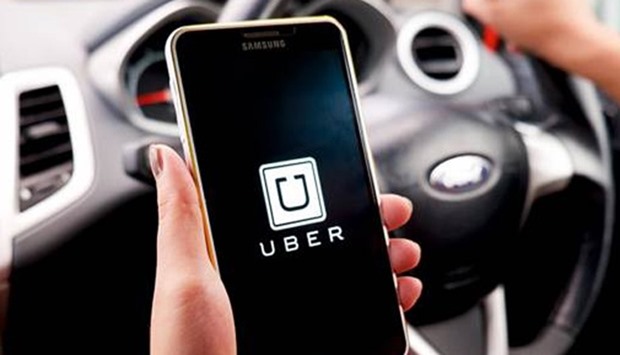Uber should no longer treat its drivers as self-employed, a British tribunal ruled on Friday, in a decision which threatens the taxi app's business model by forcing it to pay the minimum wage and offer holiday entitlement.
Two drivers brought their case to a British employment tribunal in July, arguing the rapidly expanding app, which allows users to book and pay for a taxi by smartphone, was acting unlawfully by not providing certain employment rights.
Uber said it will appeal the decision which could also affect thousands of others who work for firms, including meal delivery services such as Deliveroo, in the so-called ‘gig economy’, where individuals work for multiple employers day-to-day without having a fixed contract.
‘This is a monumental victory that will have a hugely positive impact on drivers ... and for thousands more in other industries where bogus self-employment is rife,’ said Maria Ludkin, legal director at the GMB union which brought the case.
Uber, which is valued at $62.5 billion (48 billion pounds) and whose investors include Goldman Sachs and GV, formerly known as Google Ventures, has faced protests, bans and legal action around the world.
British judges ruled that Uber should pay the drivers the minimum wage, which currently stands at 7.20 pounds ($8.80) for over 21-year olds, and said that working hours began from the moment most drivers logged into the app rather than just per ride.
‘The Uber driver's working time starts as soon as he is within his territory, has the App switched on and is ready and willing to accept trips and ends as soon as one or more of those conditions ceases to apply,’ they said in their verdict.
Uber may also have to pay pension contributions.
Lawyers representing the drivers said there will now be a further hearing to calculate the holiday and pay that the drivers should receive.
The issue of low pay and a lack of job security has sparked a public outcry in Britain in recent years with firms such as sports retailer Sports Direct facing a backlash over their use of zero-hour contracts.
In April, Uber agreed to pay up to $100 million to settle a class-action lawsuit in the United States which allowed the ride-hailing service to keep its California and Massachusetts drivers as independent contractors.
In Britain, the San Francisco-based firm had argued that its more than 40,000 drivers enjoy the flexibility of being able to work when they choose and receive on average much more than the minimum wage.
‘While the decision of this preliminary hearing only affects two people we will be appealing it,’ Uber's UK general manager Jo Bertram said.
Most employees in Britain are entitled to the minimum wage but the self-employed are among those who do not qualify.
At a tribunal hearing earlier this year, one of the two drivers, James Farrar, who has been with the firm since December 2014, said that in August 2015 he earned less than the 6.70 pounds ($8.80) an hour for those aged 21 and older which was then the minimum wage at the time.
Uber said Farrar had picked a month in which he had logged onto the app for the longest period of time but had cancelled or not accepted the most amount of jobs, thereby reducing his hourly pay.

